-
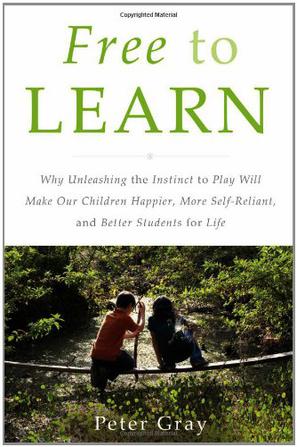
Free to Learn
What is it with kids these days? They can't sit still - but obesity is on the rise. Their days are filled with activity - but more often than not, they're bored and restless. Childhood should be a time of unbridled joy, play, and learning. Instead, we have pushed our children into an abnormal environment, where they are expected to spend the greater part of their day under adult direction, sitting at desks and taking tests. We call this imprisonment schooling. What free time they have we fill with supervised instruction: team sports, tutoring, homework. As a result, we are heading toward an unprecedented crisis, with skyrocketing rates of childhood anxiety, depression, and suicide. As developmental psychologist Peter Gray explains, children come into this world burning to learn, but the enduring lesson of school is that learning is work, to be avoided when possible. In "Free to Learn", Gray shows that we can reverse the harmful effects of modern schooling and promote learning, self-reliance, and curiosity in our kids by returning to our hunter-gatherer roots. School is an artificial construct, a relatively recent invention in our evolutionary history which arose with the development of agriculture. But as Gray points out, children's minds and their natural instincts to learn were shaped when humans were living as hunter-gatherers. In hunter-gatherer societies children were left to play freely - and over time they absorbed the practical skills they needed to survive by watching their elders, and developed social skills by having to negotiate with other children while playing. The counter-cultural movement known as "unschooling" is growing as more and more parents and teachers are coming to realize that anxiety and competition in the classroom inhibit learning; rather, self-chosen and self-directed play are what engage the mind as effective learning tools. As Gray argues, education and learning should call upon the core aspects of our human nature - curiosity, playfulness, and sociability - instead of inhibiting them. A brave, counterintuitive proposal for freeing our children from the shackles of the curiosity-killing institution we call school, "Free to Learn" shows that it's time to stop asking what's wrong with our children, and start asking what's wrong with the system. -
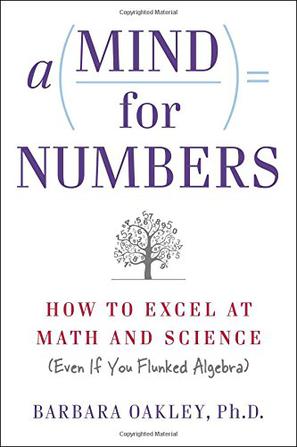
A Mind For Numbers
Whether you are a student struggling to fulfill a math or science requirement, or you are embarking on a career change that requires a higher level of math competency, A Mind for Numbers offers the tools you need to get a better grasp of that intimidating but inescapable field. Engineering professor Barbara Oakley knows firsthand how it feels to struggle with math. She flunked her way through high school math and science courses, before enlisting in the army immediately after graduation. When she saw how her lack of mathematical and technical savvy severely limited her options—both to rise in the military and to explore other careers—she returned to school with a newfound determination to re-tool her brain to master the very subjects that had given her so much trouble throughout her entire life. In A Mind for Numbers, Dr. Oakley lets us in on the secrets to effectively learning math and science—secrets that even dedicated and successful students wish they’d known earlier. Contrary to popular belief, math requires creative, as well as analytical, thinking. Most people think that there’s only one way to do a problem, when in actuality, there are often a number of different solutions—you just need the creativity to see them. For example, there are more than three hundred different known proofs of the Pythagorean Theorem. In short, studying a problem in a laser-focused way until you reach a solution is not an effective way to learn math. Rather, it involves taking the time to step away from a problem and allow the more relaxed and creative part of the brain to take over. A Mind for Numbers shows us that we all have what it takes to excel in math, and learning it is not as painful as some might think! -
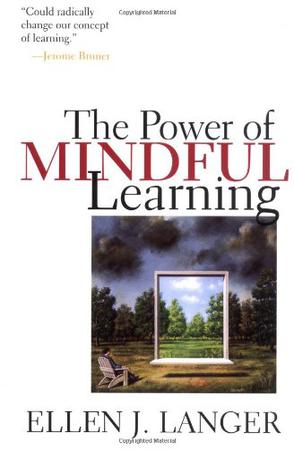
The Power of Mindful Learning
Presents the concept of mindful learning, that is the continuous creation of new categories, openness to new information, & an implicit awareness of more than one perspective. Paper. DLC: Learning. -
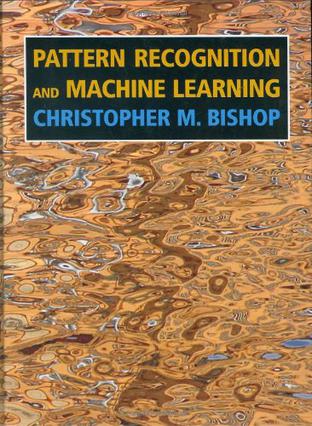
Pattern Recognition And Machine Learning
The dramatic growth in practical applications for machine learning over the last ten years has been accompanied by many important developments in the underlying algorithms and techniques. For example, Bayesian methods have grown from a specialist niche to become mainstream, while graphical models have emerged as a general framework for describing and applying probabilistic techniques. The practical applicability of Bayesian methods has been greatly enhanced by the development of a range of approximate inference algorithms such as variational Bayes and expectation propagation, while new models based on kernels have had a significant impact on both algorithms and applications. This completely new textbook reflects these recent developments while providing a comprehensive introduction to the fields of pattern recognition and machine learning. It is aimed at advanced undergraduates or first-year PhD students, as well as researchers and practitioners. No previous knowledge of pattern recognition or machine learning concepts is assumed. Familiarity with multivariate calculus and basic linear algebra is required, and some experience in the use of probabilities would be helpful though not essential as the book includes a self-contained introduction to basic probability theory. The book is suitable for courses on machine learning, statistics, computer science, signal processing, computer vision, data mining, and bioinformatics. Extensive support is provided for course instructors, including more than 400 exercises, graded according to difficulty. Example solutions for a subset of the exercises are available from the book web site, while solutions for the remainder can be obtained by instructors from the publisher. The book is supported by a great deal of additional material, and the reader is encouraged to visit the book web site for the latest information. -
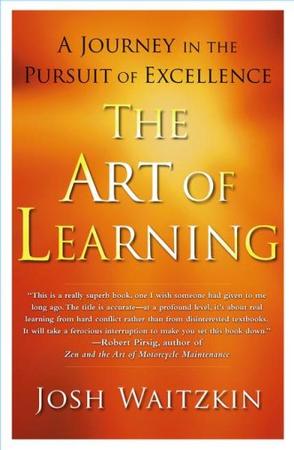
The Art of Learning
Eight-time national chess champion and international martial arts champion Josh Waitzkin lays out his battle-tested principles of learning and performance to give readers the same tools for excellence and success--in whatever field they pursue--that have propelled Waitzkin himself to the top of his game.